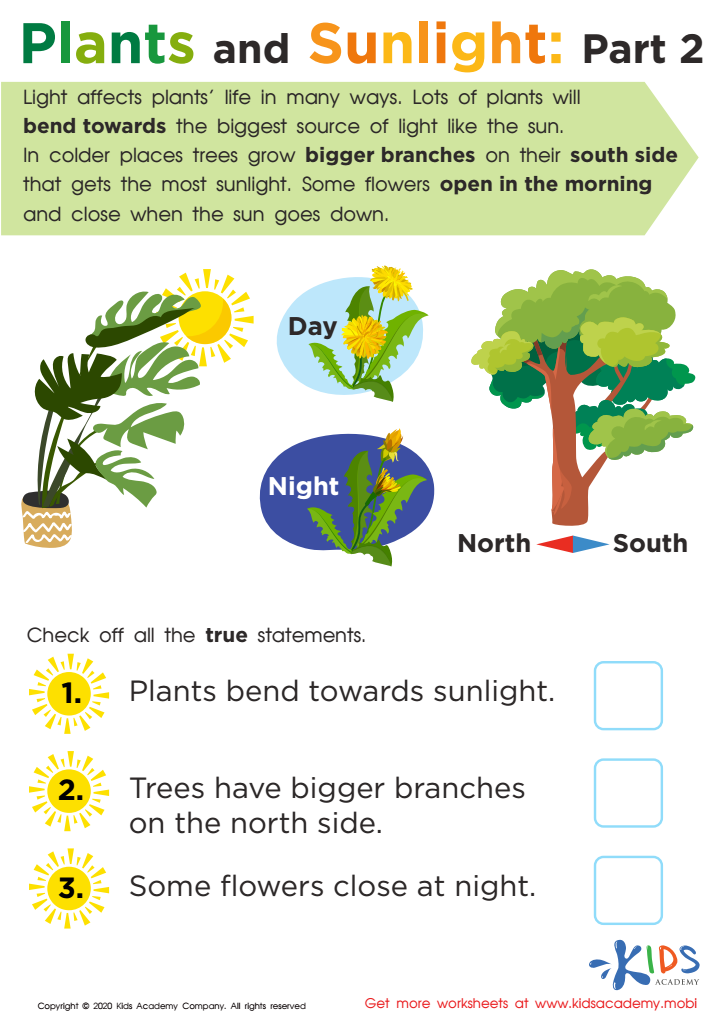Learning science vocabulary Worksheets for Kids
1 filtered results
-
From - To


Plants and Sunlight: Part 2 Worksheet
Question/Answer
Why is the Learning science vocabulary skill important for Grade 1 students?
Learning science vocabulary in Grade 1 is crucial as it lays the foundation for understanding basic scientific concepts and principles, promotes curiosity about the natural world, enhances comprehension and communication skills, and supports critical thinking and problem-solving abilities. This early exposure helps students build confidence in exploring science topics and fosters a lifelong interest in learning.
What does the Learning science vocabulary skill mean when it comes to Grade 1 Plants and Animals learning?
The Learning Science Vocabulary skill in the context of Grade 1 Plants and Animals learning involves students acquiring and understanding specific words related to plants and animals, such as "leaf," "stem," "root," "mammal," and "insect." This foundational vocabulary supports their ability to engage with scientific concepts, communicate observations, and comprehend further studies in biology.
How to train the Learning science vocabulary skill in Grade 1 students learning about Plants and Animals?
To train the Learning science vocabulary skill in Grade 1 students learning about Plants and Animals, use visual aids like flashcards and pictures, incorporate hands-on activities such as planting seeds or observing insects, employ simple, repetitive language in explanations, and engage in interactive games that reinforce the terminology, like matching games or vocabulary bingo.
 Assign to the classroom
Assign to the classroom












